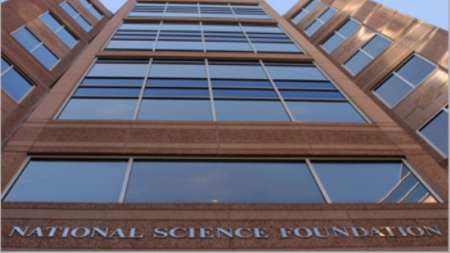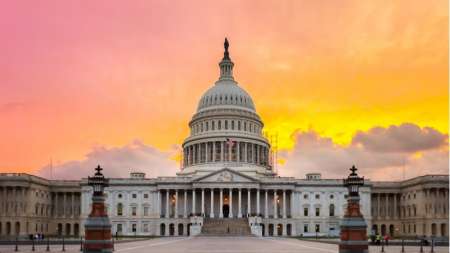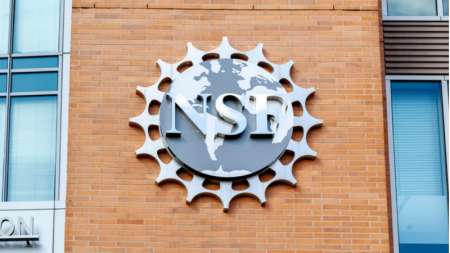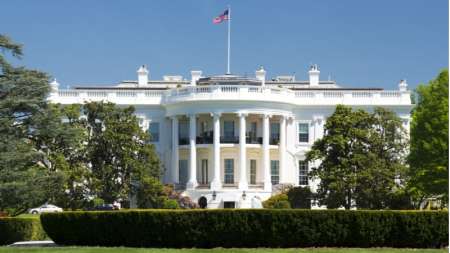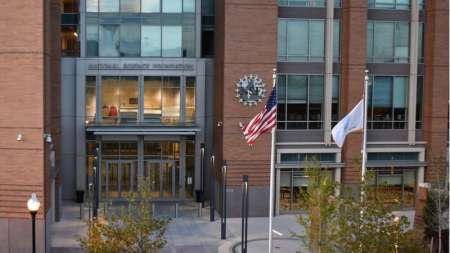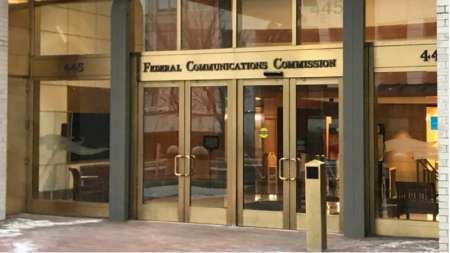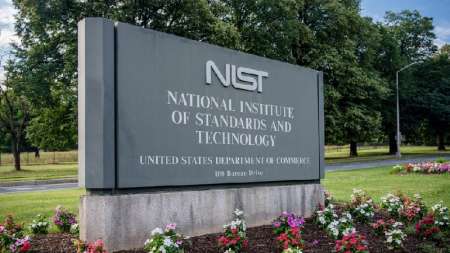The National Science Foundation (NSF) has established a new technology directorate to work with programs across NSF and with other Federal and non-Federal entities to expedite technology development in emerging areas that are crucial for the United States’ technological leadership globally. […]
University professors and Tribal leaders are using a grant from the National Science Foundation (NSF) to develop narrative technology tools to address the lack of representation of Indigenous culture, history, and stories in K-12 classrooms. […]
The House Committee on Science, Space, and Technology favorably reported several bills to the full House today, including H.R. 847—the Promoting Digital Privacy Technologies Act. […]
The National Science Foundation (NSF) is expanding its National AI Research Institute partnerships to 40 states and the District of Columbia with a combined investment of $220 million. […]
The White House Office of Science and Technology Policy (OSTP) and the National Science Foundation (NSF) are seeking input on the implementation plan for a National Artificial Intelligence Research Resource (NAIRR), according to a request for information (RFI) posted to the Federal register. […]
As artificial intelligence (AI) adoption continues to grow across the Federal government, officials said on July 15 it’s important to share lessons learned across the government, and spoke about the importance of operational and organization efficiencies in the AI adoption process. […]
The House of Representatives on Monday evening passed by wide margins two potential and complementary alternatives to the Senate-approved United States Innovation and Competition Act of 2021 (USICA), both of which would funnel tens of billions of new research funding to Federal government agencies. […]
The White House Office of Science and Technology Policy (OSTP), along with the National Science Foundation (NSF) is launching the National AI Research Resource Task Force, which will serve as a Federal advisory committee to provide recommendations for establishing and sustaining the National AI Research Resource. […]
The Endless Frontier bill championed by Senate Majority Leader Chuck Schumer, D-N.Y., and set for Senate floor debate over the next several days has grown by leaps and bounds this week with the addition of semiconductor manufacturing and cybersecurity components and has even gotten a new name – the U.S. Innovation and Competition Act of 2021. […]
The National Science Foundation (NSF) is kicking off a new initiative with Federal and private partnerships to accelerate research in areas that affect Next-Generation (NextG) networking and computing systems, NSF announced April 27. […]
A bipartisan group of senators has reintroduced the Rural STEM Education Act, which would provide Federal support for STEM training in rural schools and instruct the director of the National Science Foundation (NSF) to provide grants to support training for rural STEM teachers. […]
The White House and a bipartisan group of senators are finding common ground in the Endless Frontier Act legislation introduced in the Senate today. […]
Senate Commerce, Science, and Transportation Committee leaders staked out key policy positions today on proposed legislation that would greatly expand the National Science Foundation’s (NSF) technology research funding portfolio. […]
National Science Foundation (NSF) Director Sethuraman Panchanathan told House appropriators today that the $10.2 billion proposed budget for the agency for fiscal year 2022 is necessary for the United States to remain a global tech leader, and to “outcompete” China in its efforts to take the top spot. […]
President Biden’s fiscal year 2022 request for discretionary funding sent to Congress on April 9 would line up the Department of Veterans Affairs (VA), the National Science Foundation (NSF), and the National Institutes of Health (NIH) for substantial budget increases that include significant amounts for tech-related spending. […]
At the heart of artificial intelligence (AI), robotic process automation (RPA), and other emerging technology implementation for the Department of Energy (DoE), National Science Foundation, and General Services Administration is sharing innovation, considering change management, and understand the business problems at hand, experts from the organizations said today. […]
Senate Majority Leader Chuck Schumer, D-N.Y., plans to introduce a bill to ensure the United States will “out-compete China” as a global tech leader and create new American jobs in the tech industry. […]
The National Science Foundation (NSF) is collaborating with Amazon on a program to support research focused on fairness in artificial intelligence and announced the program’s first cohort of 2021 awardees. […]
The Federal Communications Commission (FCC) is joining the National Telecommunications and Information Administration (NTIA) and National Science Foundation (NSF) in the Spectrum Innovation Cooperation Agreement, which seeks innovative R&D advancements on challenges facing the United States because of increasing demands for electromagnetic spectrum access. […]
The Government Accountability Office (GAO) said in a new report that four Federal agencies it examined are making progress on establishing data governance policies, but still have more work to do on some key milestones including assessing data and infrastructure maturity, and staff data literacy. […]
The Council of the Inspectors General on Integrity and Efficiency (CIGIE) has announced the election of Allison Lerner as the group’s new chairperson, effective in January. […]
Last week the White House announced $140 million in funding towards seven artificial intelligence institutes across the country. Now the private sector is getting in on the action with four major tech companies pledging more than $160 million for eight new AI institutes. […]
The National Science Foundation (NSF) is launching a new initiative to invest $25 million in research projects dedicated to foundational data science principles. […]
The National Science Foundation has awarded $10 million in grant funding to the cloud computing testbed Chameleon, which enables systems and networking innovations by “providing thousands of computer scientists with the bare metal access they need to conceptualize, assemble, and test new cloud computing approaches.” […]
The National Science Foundation (NSF) is investing in introducing quantum information science (QIS) into K-12 schools, awarding a $750,000 award to an Illinois-based organization that is looking to spread quantum-related curricula. […]
The House Appropriations Subcommittee on Commerce, Justice, Science (CJS), and Related Agencies approved by voice vote a $71.4 billion funding bill for fiscal year 2021. […]
The National Science Foundation (NSF) and Intel are partnering to fund research for machine learning (ML) in wireless networks in hopes of accelerating a new wireless architecture that can keep up with modern demands. […]
The Congressional Budget Office (CBO) estimates that the Identifying Outputs of Generative Adversarial Networks (IOGAN) Act (S.2904) would cost $6 million between 2020 and 2025. […]
The Senate voted by voice yesterday to confirm academic Sethuraman Panchanathan to be the next director of the National Science Foundation (NSF). […]
The National Science Foundation (NSF) has awarded a $10 million grant to the Pervasive Technology Institute at Indiana University (IU) to deploy a distributed cloud computing system that will help support on-demand research, AI, and enhanced large-scale data analyses for the United States. […]

